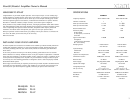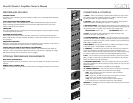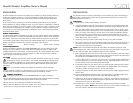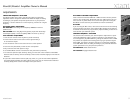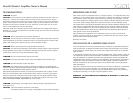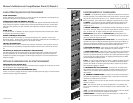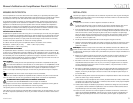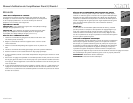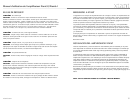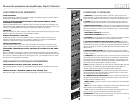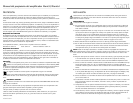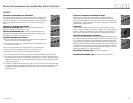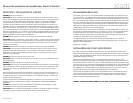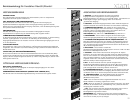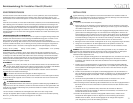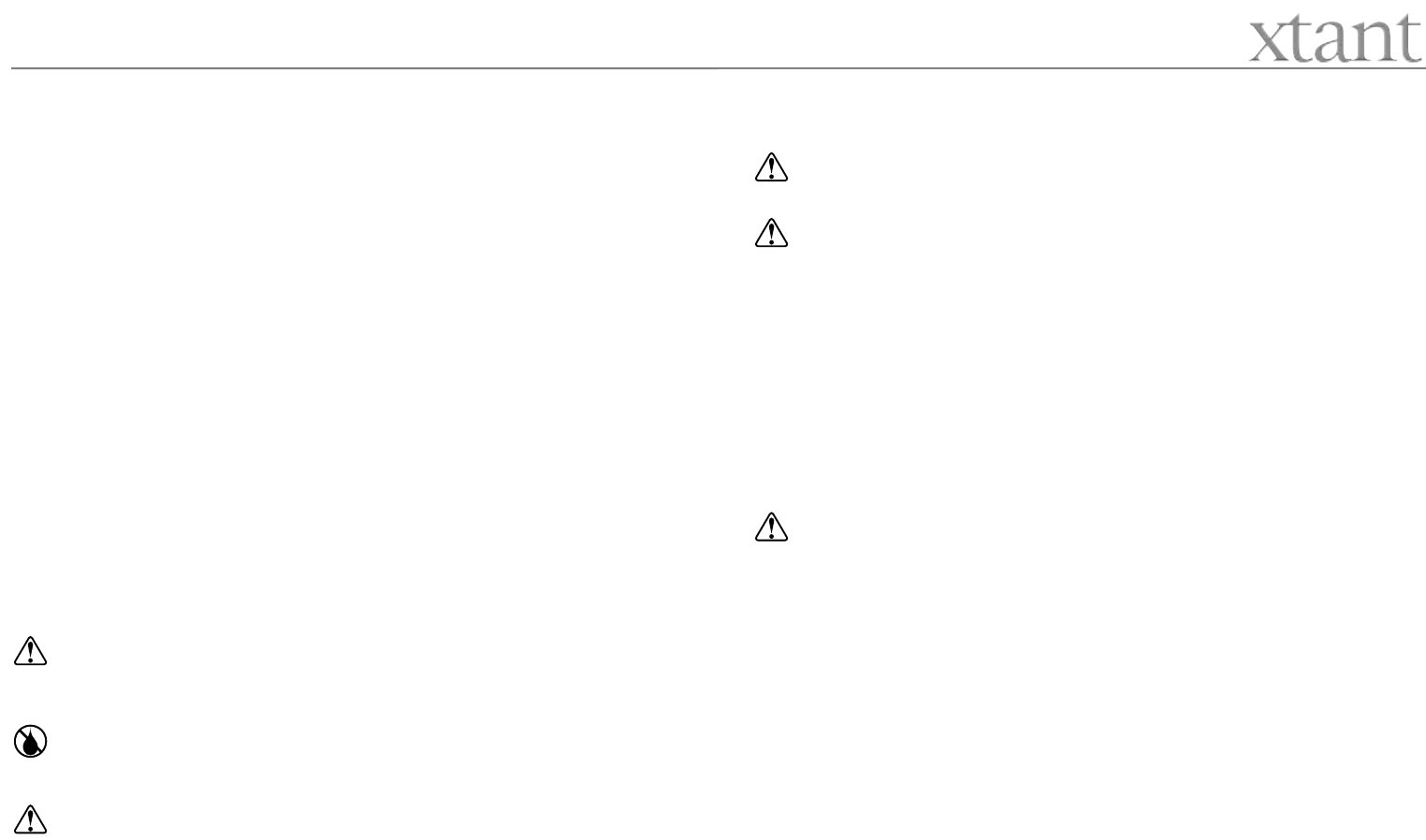
xtant.com
Xtant3.1/Xtant6.1 Amplifier Owner’s Manual
SAFEGUARDS
All Xtant amplifiers and accessories are intended to be installed by an Xtant-certified professional
mobile audio installation specialist. It is the recommendation of Xtant Technologies that your
new Xtant product(s) and all of your mobile audio products be installed by your Authorized
Xtant retailer.
In the event you decide to install your new Xtant product(s), please take the time to read this
Owner’s Manual in its entirety. Installation and/or use of your amplifier in applications or methods
other than those specified in your Xtant amplifier owner’s manual may result in a reduction of the
overall performance capability of the amplifier. Any such installation or usage renders the prod-
uct warranty void. The following guidelines are designed to assure a safe and properly installed
Xtant Mobile Audio System.
WIRING REQUIREMENTS
Your Xtant power amplifier is designed for use with a 12 Volt, negative ground system. Installation
of your Xtant amplifier in a vehicle with a POSITIVE ground system will result in severe damage to
the amplifier, other audio components and/or the vehicle’s electrical components. If your vehicle
uses a positive ground system, please consult your authorized Xtant retailer or specialty install shop.
Xtant3.1 and Xtant6.1 amplifiers have minimum wire gauge requirements for:
Power - 4 gauge Ground - 4 gauge Speaker cables - 12 gauge
FUSING REQUIREMENTS
Xtant3.1 and Xtant6.1 amplifiers are not fuse protected! A fuse must be installed in-line with
the power wire at the battery, no further than 18" from battery. For safety, an outboard fuse
should be added close to the amplifier. For fuse requirements for a single amplifier, refer to page
3 of this manual. In the case of a multi-amp system, use a fuse value equal to the combined
value of all system amplifier’s power fuses.
LOCATION
A firm, flat surface with minimum vibration is ideal. Your Xtant amplifier may be mounted
horizontally or vertically on a flat surface. The amplifier should NEVER be mounted upside
down. This ill-advised configuration can increase internal operating temperatures, decrease the
amplifier’s ability to dissipate heat and speed up the amplifier’s automatic thermal shut down
mechanism.
Under no circumstances should your amplifier be exposed to moisture and water.
To ensure adequate ventilation, the ideal location for your Xtant amplifier is an area away from
any heat source, with at least 2 inches of clearance above and around the amplifier.
COMMON OVERSIGHTS
• The battery ground should remain DISCONNECTED at all stages of installation.
• Do not begin drilling until you have put your Xtant amplifier aside. Using the amplifier as a drilling
guide may cause irreparable damage to the amplifier and void your warranty.
• Do not route any wires underneath or outside the vehicle body.
• Route signal wires (RCAs from source unit, speaker wires, etc.) away from power wires (power,
ground, etc.) to avoid ground loops and other sources of noise.
INSTALLATION
Any deviation from the connection specifications recommended may cause serious damage to
the amplifier, speakers and/or vehicle electrical system. Please double-check the connections
before turning the system on.
PROCEDURE
1. Disconnect the vehicle’s negative battery connection.
2. Using the supplied allen wrenches, remove the four (4) screws from the annealed stainless steel
amplifier cover. Put this aside until your installation is complete to prevent damage to the cover.
3. Place your Xtant amplifier at the predetermined mounting location. Using a felt pen, mark
the exact position of the mounting holes on the mounting surface. Set your Xtant amplifier
aside. Use a sharp, precise blade to cut small circles in the carpet and padding around the
four marks denoting your mounting holes to expose the metal underneath. Use a center
punch to make an indentation in the metal to ensure that you drill the exact position for the
screws. Drill the four holes as marked.
4. Temporarily mount your Xtant amplifier using the four (4) long screws provided.
5. Run a power cable from the vehicle’s battery through the firewall and through the interior of
the vehicle connecting one end to your Xtant amplifier’s B+ terminal and connecting the
other end to the positive post on the battery.
NOTE: Install a circuit breaker/fuse within 18" of the battery. This effectively lowers the risk of
severe damage to your vehicle should a short circuit ever occur in the audio system. Do not install
the fuse in the fuse holder until all installation steps have been completed.
6. Find a good ground spot on the vehicle’s chassis and remove the paint to reveal bare metal at
the contact point. Attach the ground wire to that contact point and connect the other end of
the ground wire to the GND terminal of your Xtant amplifier.
7. Connect a Remote Turn-on wire from your source unit to your Xtant amplifier’s REM terminal
(14 or 16 gauge wire). If your source unit does not have a dedicated Remote Turn-on lead,
you may connect to the source unit’s Power Antenna lead.
8. Connect RCA cables from your source unit to your Xtant amplifier’s RCA input jacks. If RCA
(low) level output is not available, use Xtant’s High Level Adapters (HLA—not included) to
connect the speaker level (high level) wires to a set of RCA cables.
9. Connect your speakers to your Xtant amplifier’s speaker terminals using 12 gauge minimum
speaker cable.
10. If you are using the RLC remote level control, mount the control in a convenient location in the
driver’s area and route the wire and connect to your Xtant amplifier’s RLC port.
11. Double-check all the previous installation steps, in particular, the wiring and component con-
nections. Securely mount the amplifier. Remove the protective film and screw the annealed
stainless steel cover back onto the amplifier.
12. If everything is in order, reconnect the vehicle’s negative battery connection and begin
adjusting your amplifier.
NOTE: Be sure that the Gain Level on the amplifier is turned all the
way down (counter clockwise) before proceeding with adjustments.
7




